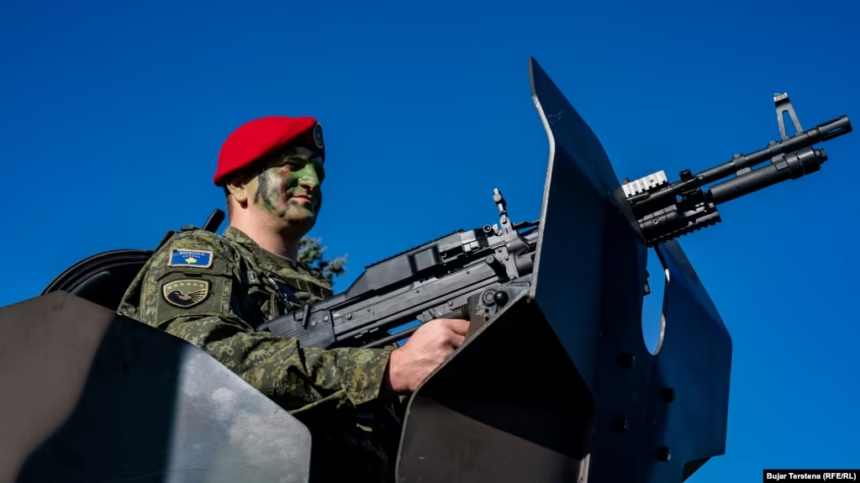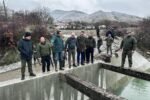NATO’s mission in Kosovo, KFOR, confirmed that after the explosion on the Ibër-Lepenc canal in the municipality of Zubin Potok in the north on November 29, Kosovo’s institutions requested authorization from the KFOR commander to potentially deploy the Kosovo Security Force (KSF) in the affected area.
“The KFOR commander did not grant such authorization, based on his security assessment and the actions that have already been taken by KFOR,” KFOR said in a written response to Radio Free Europe.
Kosovo made this request in accordance with the 2013 agreement signed between the institutions of Kosovo and NATO, under which then Prime Minister of Kosovo, Hashim Thaçi, assured NATO that the KSF would not go to the north without prior approval from KFOR.
“As communicated in our statement yesterday, KFOR has deployed units to secure the affected area of the water canal in Zubin Potok. KFOR has also provided additional assistance to the institutions in Kosovo, including logistical support and bomb disposal,” KFOR said in its response.
The mission added that the KFOR commander remains in contact with all his key partners and is keeping the situation under observation. Kosovo blames Serbia for being behind the explosion in the north, an accusation Serbia denies.
Kosovo’s Prime Minister, Albin Kurti, during a press conference on Sunday evening, did not answer the question of whether he had asked KFOR for permission to send the KSF to the north but stated that “we are limited in the north since our army, based on the 2013 agreement, cannot go to the north.”
“Therefore, the situation there is not the same as in other parts of our country.”
Kurti added that, although he does not like the commitment made not to send the KSF to the north, he will respect it.
“Would it have been better and safer if the Kosovo army were there? Yes, it would have been. However, it is not there, and we respect the commitment that Thaçi made,” Kurti said.
Earlier today, Serbian President Aleksandar Vučić said that Kurti made this request to NATO.







